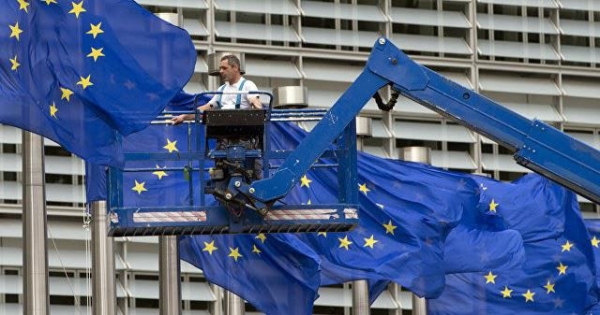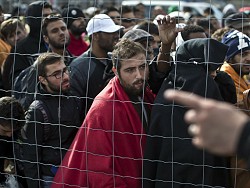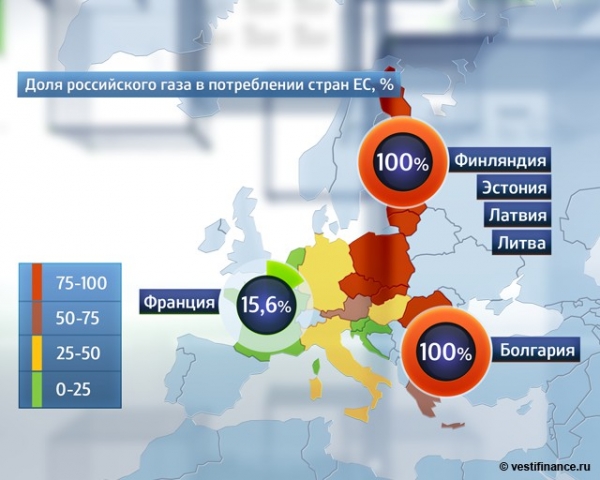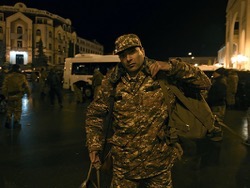
Next year for Europe can hardly be called easy. Rather, the contrary. Problems to add more. The refugee crisis, the instability of the economies of the peripheral countries of the Union, the threat of terrorist acts – all this clearly does not add the current rating of parties and heads of European States. All these problems give rise to new crisis of confidence in the authorities in EU member States.
In 2017, the year will happen in Europe, a kind of wave elections, and various referendums, which, according to estimates by news Agency Bloomberg, will give the EU greater political instability. “Europe is in a state of permanent crisis, which seems not going to end. How the Old world will cope with these new challenges, show the election in half of European countries… While for Europe actual problems of a British exit from the EU, the largest influx of refugees, terrorism, the surge in popularity of eurosceptic and populist parties, the crisis of the banking system,” writes journalist Patrick Donahue.
It should be noted the most important political events that will occur in 2017, the year of the regional elections in the Spanish Basque autonomy (after which immediately aktiviziruyutsya Catalonia), the referendum in Hungary, where the population will decide whether to obey Brussels, or to ignore it and not to allow themselves migrants, a referendum on the reform of the Prime Minister of Italy Matteo Renzi, which could trigger early elections and chaos in Parliament. Here should be added the elections in Austria and Germany, where more and more authority gaining the ultra-right forces.
If the problems of Spain, disobedience to Brussels, Hungary and the political crisis of confidence in Italy you can still somehow understand, after all these countries are sort of the periphery of the EU, the point of bifurcation in Germany and Austria if extreme right “move” existing elite, can have serious repercussions on the entire EU policy. Here, by the way, you should also add France, which is spring 2017 th presidential elections and now put everything on defeat Hollande.
The Director of the Center for political information Alexei Mukhin in an interview with the online magazine “international Affairs” stressed that the current authorities, especially in Germany, can be called a serious blow: “Angela Merkel as a symbol of the successful project “the European Union and the initiator of the policy of “open doors”, will be assigned mainly to blame for the failure of the doctrine of multiculturalism. Now Germany comes close to discussing alternatives to the current state Chancellor. However, there is now the horizon of German policy people who are ready to assume global responsibility not only for their country but for the whole of Europe caught in a difficult situation – the big question”.
The problem is that Europe’s population is becoming less supportive of EU leaders manifesting from time to time of political weakness. However, disappointed in them, nobody can find a worthy replacement for the current European elite. That is why the voters of Europe and turns his gaze on the far right who propose radical measures in the issue of migrants. Although it should be noted that adhere to the similar point of view, yet not so much.
“If even a series of elections next year and will not lead to change of policy of Europe, and, most likely, will be so, then in the next cycle will be a strong growth of national consciousness. Also will be a mass support of the political forces, which will pursue a strict migration policy and often ignore political correctness. In the next 4 years any tectonic shifts should be expected. But after 10 years in Europe we could not learn. But there is a likelihood that such a scenario can greatly speed up. The catalyst for this can be major terrorist attacks in Western Europe. Given the events of the past year, this can’t happen”, – shared with Noteru.com his opinion of the political scientist Pavel Danilin.
As a result, in 2017, the year the EU will have to deal with the problems of internal character. Foreign policy of the leading countries – France and Germany – will fall into a state of “freeze” until then, until you are made new, or strengthen its position of the old elite. Most likely, the General course of the EU will not change in the next few years. However, he left the authorities of European countries will have to continue to put up with the loss of its rating among the population. Next election cycle, with more likely to open the way to the right, which, in turn, want to change foreign policy priorities.
Journalist and historian Yevgeny Trifonov considers that the political crisis in Europe is a developing problem that will lead, ultimately, to the neglect of tolerance and the rise of the national idea: “Election 2017 fifth year may be the beginning of the reformatting of Europe. Migrants are only one, albeit the most painful of the topics of concern to Europeans. There is also dissatisfaction with the power of Brussels bureaucrats, which is annoying not only educated people, but also trade unions and farmers. Finally, in major EU countries (Germany, Italy, Spain and especially France) is very strong dissatisfaction with the dictates of Washington – hence the enactment of a number of European politicians “Putin’s card”. Forces, ready to destroy Europe, there is: victory of psevdonauka evolution Tsipras and Spanish PODEMOS vasilevskoi – evidence; all sorts of Trotskyists, hoxhaists, and other “antifa” does not count. In the European agenda 2017 – the weakening of pan-European organizations and strengthening the national; restoration of priority national interests and the law over European; the closure (in one way or another) European migrants and conduct more independent policy towards the United States.”
Explorer Noteru.com Ilya Krugla








